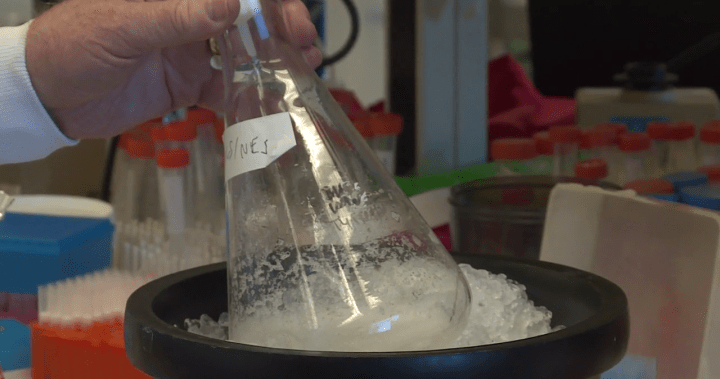A breakthrough in cancer-fighting immunotherapy has brought recognition to University of Alberta alum, Michel Sadelain. His major discovery in the field is already making a difference in the lives of cancer patients.
Sadelain will be honored with the prestigious 2024 Breakthrough Prize in Life Sciences for his pioneering work in developing a cancer treatment that utilizes a patient’s own T-cells for healing.
“This is not just recognition for my work, but also for the emerging field of immunotherapy, specifically CAR therapy,” Sadelain said.
While there are different types of immunotherapy for cancer treatment, Sadelain’s method stands out. Instead of using a vaccine, it focuses on instructing the immune system’s T cells to recognize and eliminate cancer cells.
Sadelain developed a synthetic gene to create a molecule known as a chimeric antigen receptor (CAR), which is then produced by the T cells. This molecule instructs the T cells to identify and destroy cancer cells.
Dean Lorne Tyrrell, distinguished professor of medical microbiology and immunology, expressed his admiration for Sadelain’s accomplishment and highlighted his determination and vision as a student.
“He truly is the inventor of T cells, as confirmed in court,” Tyrrell said. “He had the conviction and persistence to make a significant impact on the industry.”
Sadelain conceived the idea for his breakthrough treatment in 1986 while studying at the University of Alberta. To bring his idea to fruition, he sought further education at the Massachusetts Institute of Technology (MIT) and learned from leading experts in the field.
Currently serving as the director of cell engineering at the Memorial Sloan Kettering Cancer Centre in New York City, Sadelain remains inspired by his personal experiences with cancer and has a larger goal in mind.
“Most medicines come in pill or injection form, but cells can also be a powerful form of medicine,” Sadelain explained. “The pharmaceutical industry has never explored cells as medicines before, believing it to be too complicated and potentially not worth it.”
“However, if we can demonstrate that cells can achieve results that other medicines cannot, such as curative responses in patients, then it becomes worth the effort.”
Pharmaceutical companies are now beginning to invest in cells as medicine after witnessing the success of Sadelain’s research.
“There is currently a significant effort to adapt these T cells for other types of cancer and autoimmune diseases,” he noted.
In Canada and the United States, there are currently six commercially available CAR T cell products for the treatment of certain lymphomas, leukemias, and myeloma.
Sadelain’s groundbreaking work has not only earned him recognition but also brings hope for the future of cancer treatment.
© 2023 Global News, a division of Corus Entertainment Inc.
Denial of responsibility! Vigour Times is an automatic aggregator of Global media. In each content, the hyperlink to the primary source is specified. All trademarks belong to their rightful owners, and all materials to their authors. For any complaint, please reach us at – [email protected]. We will take necessary action within 24 hours.



